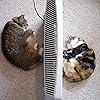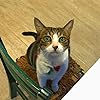Steve Fouse
asked:
Has anybody got any ideas about why none the characters have names? The narrator is never named, and there are the chubby girl, the librarian(s), the Gatekeeper, and others. It may be a way of making the story's themes apply universally rather than just to specific people, but the characters are described in detail, and seem too real to be just nameless, non-specific persons.
To answer questions about
Hard-Boiled Wonderland and the End of the World,
please sign up.
Junta
I recently read a collection of his essays, 'Novelist as Profession', published in Japan in 2015 (it might be a while before it's translated into English) - the 9th chapter is on characters.
Although the answers submitted to this question are all valid, there is another simple reason mentioned in that chapter (my translation):
"I was okay with nicknames like 'The Rat' or 'J', but I just couldn't set proper names for the characters. Why not? I'm not sure myself, and can only say that I was embarrassed about naming people. I'm not sure how to put it, but it seemed somewhat artificial for someone like me to be freely designating names onto people (even if they were fictional characters I created).
The first time I was able to properly name characters was in 'Norwegian Wood' (1987). So, in the first eight years before that, I was using nameless characters and writing in the first person view. Thinking about it, it seems I was limiting myself with a tedious rule, but I didn't give it a second thought then."
tl;dr this novel was published in 1985, before Norwegian Wood when he started naming characters.
Although the answers submitted to this question are all valid, there is another simple reason mentioned in that chapter (my translation):
"I was okay with nicknames like 'The Rat' or 'J', but I just couldn't set proper names for the characters. Why not? I'm not sure myself, and can only say that I was embarrassed about naming people. I'm not sure how to put it, but it seemed somewhat artificial for someone like me to be freely designating names onto people (even if they were fictional characters I created).
The first time I was able to properly name characters was in 'Norwegian Wood' (1987). So, in the first eight years before that, I was using nameless characters and writing in the first person view. Thinking about it, it seems I was limiting myself with a tedious rule, but I didn't give it a second thought then."
tl;dr this novel was published in 1985, before Norwegian Wood when he started naming characters.
Junyu
To me the lack of names creates an interestingly/mysteriously/annoyingly 'dreamy' feeling. It could be that, because the big topic of the book is 'Identity'. The confusion about identity led to the separate of shadow and body in the imagery world. The character was wondering between his more sophisticated and purer self and could not make a decision until the very end. Names as a symbol of identities might be too arbitrary and simple in this case.
Getting rid of names might also help to build the structure of the book since the fact that the two 'I' were the same person was kind of revealed late in the book.
Getting rid of names might also help to build the structure of the book since the fact that the two 'I' were the same person was kind of revealed late in the book.
André
It's actually just something that's typical of Japanese literature. There's plenty of authors who only give their characters initials as name or use titles instead of names. Writing from the perspective of an unnamed main character is a common aspect of so-called Japanese "I-Novels", too, possibly the most successful genre of modern Japanese literature, though Murakami is post-modern of course.
(Hell, many of the earliest Japanese literary works do not provide a name for their protagonist!)
Keep in mind as well that there are many, many more ways to say "I" in Japanese than there are in English - some of which carry a lot of nuance (a good example would be Natsume Soseki's "I Am a Cat", which uses the term Wagahai in its original Japanese title, an extremely over the top way of addressing yourself that is similar to the Royal We in English - and that is lost when we are reduced to translating it as "I").
I haven't read this particular book in a while, but I believe the "I" in the two worlds uses DIFFERENT pronouns in Japanese. One uses the more formal Watashi while the other uses Boku. Both names carry nuance - and most importantly, unlike in the English translation, are not the same name at all.
(Hell, many of the earliest Japanese literary works do not provide a name for their protagonist!)
Keep in mind as well that there are many, many more ways to say "I" in Japanese than there are in English - some of which carry a lot of nuance (a good example would be Natsume Soseki's "I Am a Cat", which uses the term Wagahai in its original Japanese title, an extremely over the top way of addressing yourself that is similar to the Royal We in English - and that is lost when we are reduced to translating it as "I").
I haven't read this particular book in a while, but I believe the "I" in the two worlds uses DIFFERENT pronouns in Japanese. One uses the more formal Watashi while the other uses Boku. Both names carry nuance - and most importantly, unlike in the English translation, are not the same name at all.
Kate
That's an interesting observation! It feels to me like it's a way of detaching us to them. Like each character's role is more important than who they actually are. Perhaps it's Murakami's way to focus the story on the events/themes/metaphors instead of fictional people?
Mark
I completley agree with Junyu. The omission of names from this books gave the two separate stories a unity that would probably be far more difficult to achieve with names. It also paved the way for a fascinating exploration of "self" and al that constitutes the self.
Daria
I join everybody who thinks that without names it's easier to "travel" between two worlds in this book, but I also want to add something I strongly believe in.
I think that in every book Murakami tells us a new story, but with the same heroes. They might seem a bit different but the "ideas" of them travel from one book to another. The main character, the Rat, the wives, the girlfriends of theirs, the mediators between the worlds in different books - Hard-Boiled Wonderland has the same heroes as Hear the Wind Sing, Pinball 1973 etc (and even beyond the Rat trilogy, including Kafka on the Shore, foe example). But since in some of those books the names of the characters are different, Hard-Boiled Wonderland has no names at all so that we don't mix all the characters in our head. They have clear presence, clear characters, they are recognisable, that's why they don't need names.
I think that in every book Murakami tells us a new story, but with the same heroes. They might seem a bit different but the "ideas" of them travel from one book to another. The main character, the Rat, the wives, the girlfriends of theirs, the mediators between the worlds in different books - Hard-Boiled Wonderland has the same heroes as Hear the Wind Sing, Pinball 1973 etc (and even beyond the Rat trilogy, including Kafka on the Shore, foe example). But since in some of those books the names of the characters are different, Hard-Boiled Wonderland has no names at all so that we don't mix all the characters in our head. They have clear presence, clear characters, they are recognisable, that's why they don't need names.
Gary Crossey
Not naming people is part of his style. In 1Q84 he talks about the main character best friend as his friend. It makes me think of how we interact with one another. Often, we don't know the person's name. And refer to individuals as their relationship to others, or their job, or (when there is not another relationship) their body type, etc.
I think he is trying to capture that idea that we often only know the names of people we interact with often. Meanwhile, we insert the generic "naming" of people that we interact with infrequently.
The tall guy at the post office.
The young kid at the grocery store.
I think he is trying to capture that idea that we often only know the names of people we interact with often. Meanwhile, we insert the generic "naming" of people that we interact with infrequently.
The tall guy at the post office.
The young kid at the grocery store.
Noreen
Do Murakamis characters ever have names? Seems it's just his thing. Let's the reader fill in the character more the way you want.
Yan Estose
I found it more effective without the names, just so we could shift easily from one 'world' to another. I especially like how he shifted his tenses too, going back and forth.
Fatherdaddy
I believe one of my favorite short stories was the same way — To Build a Fire by Jack London. Like also mentioned here, I had read the story numerous times before I realized it. Suppose it did enhance the story experience as it was that much more of an Rorschach "inkblot" while reading.
Ellen
I think is has to do with his mind. He isn't experiencing the world or his life fully so giving names to the other characters gives them more meaning, substance, reality. The characters in the town I don't think they have names because they are either fragments of his memories and reality or pieces of his own personality.
Rich Uncle Pennybags
I feel like a number of Japanese writers like to do this; Abe Kobo almost never names his characters.
Ritesh Lilaramani
I believe that not giving names allows the reader to imagine who that character might actually be...for example in initial chapter a reader may think that the two parallel plots are totally different , however during the course one realizes that there is so much in common that they have to be the same person, but for example in his core- consciousness whom he pictured as the librarian(in end of world), the actual librarian or the chubby girl or may be his ex-wife all that is left for the reader to imagine, the colonel who helped him could he be the professor, the trigger switch etc.
Edgar
I definitely agree with an idea that names are abolished to make an easy transition between world and make people from different stories related to each other like librarian is basically the same woman and characters with name of a profession is there, in the book, just to do their job. In the same time I have a feeling that it's far beyond this, the systems mentioned in the book makes me think about Murakami himself using a first world-system, while the other two (presented in the book) are the ones HE thinks of while writing a story. And as a person thinking about himself being in a dream-like stories, writer just don't assign names to characters to make reader closer to those people in the book. It is like an inception of story inside readers head, adds fluidity and brings book's two realities closer to ours. Making me think that all the references are there for the same reason.
Cecilie Hjort
I hadn't thought of that - but the book was unusually easy for me to follow in terms of who was who. I often struggle with putting the names together with the characters if more than two are introduced. So I don't know if it's an answer, but for my specific kind of brain, it removed a usually very annoying tangle of 'who-was-this-again?'.
J C
I just realized this after finishing the book. It didn't occur to me at all while reading at all. I was that immersed in it I suppose.
Philia
Thanks for all the comments. You got me very curious and this book is added to my Read-list now.
About Goodreads Q&A
Ask and answer questions about books!
You can pose questions to the Goodreads community with Reader Q&A, or ask your favorite author a question with Ask the Author.
See Featured Authors Answering Questions
Learn more
















